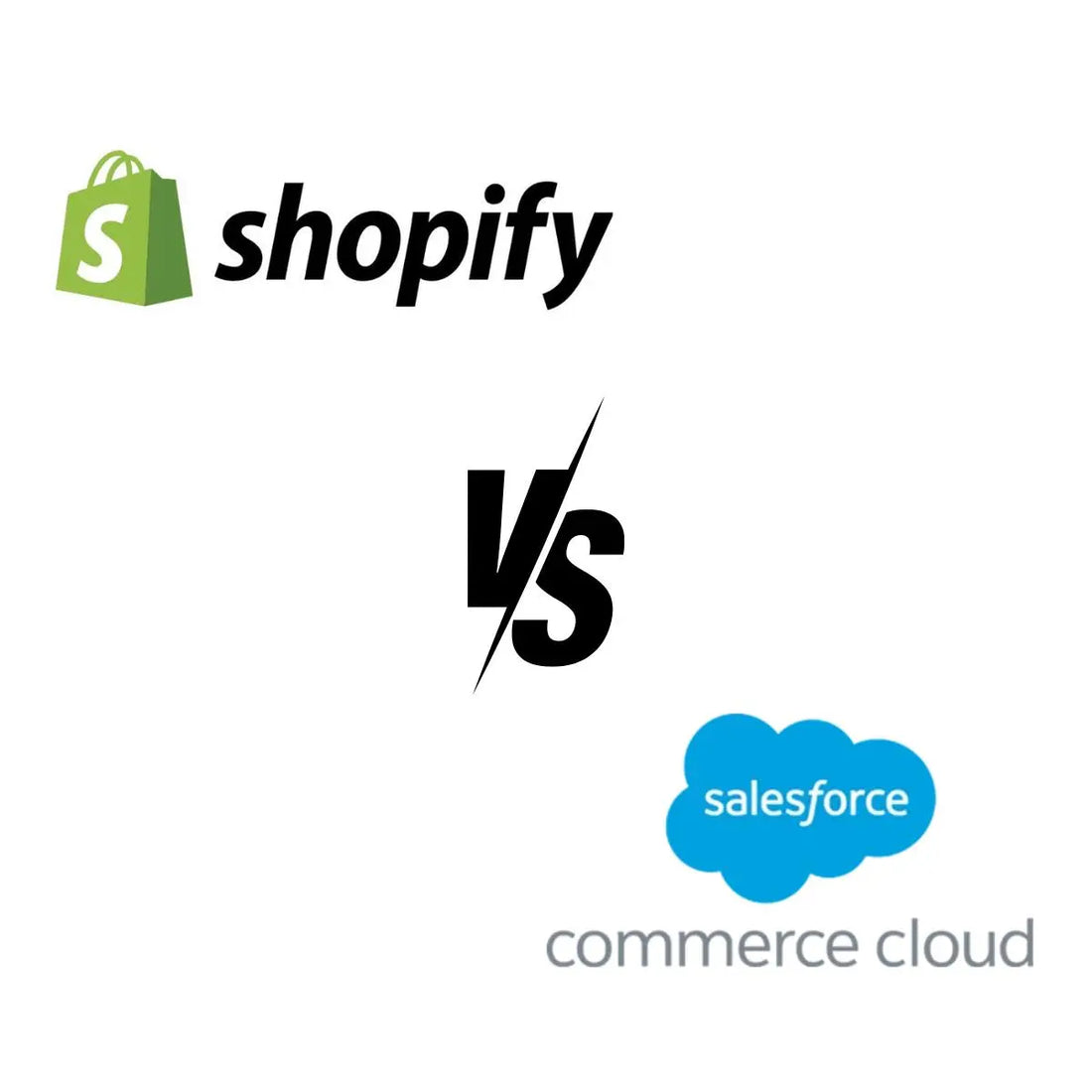When comparing Salesforce Commerce Cloud and Shopify, it's important to understand their unique features, target audiences, and overall capabilities:
-
Purpose and Focus:
- Salesforce Commerce Cloud: Formerly known as Demandware, Salesforce Commerce Cloud is a cloud-based e-commerce platform that focuses on providing enterprise-level solutions for retailers. It offers features for building and managing online storefronts, including product catalog management, order processing, marketing automation, and customer service tools.
- Shopify: Shopify, as mentioned earlier, is an e-commerce platform designed primarily for small and medium-sized businesses. It provides tools for setting up and managing online stores, including website design, product management, payment processing, and order fulfillment.
-
Features and Capabilities:
- Salesforce Commerce Cloud: Commerce Cloud offers robust features tailored to the needs of large retailers and brands. These include advanced merchandising capabilities, personalized marketing tools, omnichannel support for integrating online and offline sales channels, and extensive customization options.
- Shopify: Shopify provides a user-friendly interface and a wide range of features suitable for entrepreneurs and SMBs. Its features include customisable website templates, product listings, inventory management, payment gateways, shipping options, and various marketing tools.
-
Target Audience:
- Salesforce Commerce Cloud: Salesforce Commerce Cloud primarily targets large retailers and brands with complex e-commerce requirements. Its solutions are designed to handle high transaction volumes, support multiple brands and regions, and provide scalability for growing businesses.
- Shopify: Shopify is popular among small and medium-sized businesses looking to establish or expand their online presence. Its ease of use, affordability, and scalability make it an attractive option for entrepreneurs, startups, and growing e-commerce ventures.
-
Integration and Customization:
- Salesforce Commerce Cloud: Commerce Cloud offers integration with other Salesforce products, such as CRM and marketing automation tools, providing a unified platform for managing customer interactions across multiple channels. It also supports integration with third-party systems and services through APIs.
- Shopify: Similarly, Shopify provides integration with various third-party apps and services through its App Store, allowing merchants to extend the platform's functionality as needed. While Shopify's customization options may not be as extensive as Commerce Cloud's, it offers enough flexibility to meet the needs of most SMBs.
-
Pricing:
- Salesforce Commerce Cloud: Pricing for Commerce Cloud is typically tailored to each enterprise's specific requirements, based on factors such as transaction volume, customization needs, and additional services required. This can make Commerce Cloud a more expensive option, especially for smaller businesses.
- Shopify: Shopify offers multiple pricing tiers, ranging from basic plans suitable for small businesses to advanced plans with more features and higher transaction limits. Pricing is based on factors like the selected plan, transaction fees, and any additional apps or services used.
In summary, Salesforce Commerce Cloud and Shopify serve different segments of the e-commerce market. Commerce Cloud is ideal choice for large retailers and brands with complex requirements, offering enterprise-level features and scalability. Shopify, on the other hand, targets small and medium-sized businesses with its seamless user-friendly interface with many scalability options, affordability, and flexibility. Meanwhile Shopify Plus targets Larger scale enterprises.
Ultimately, the choice between Salesforce Commerce Cloud and Shopify depends on factors such as business size, budget, and specific e-commerce needs.
Contact us now to get Start your e-commerce journey

